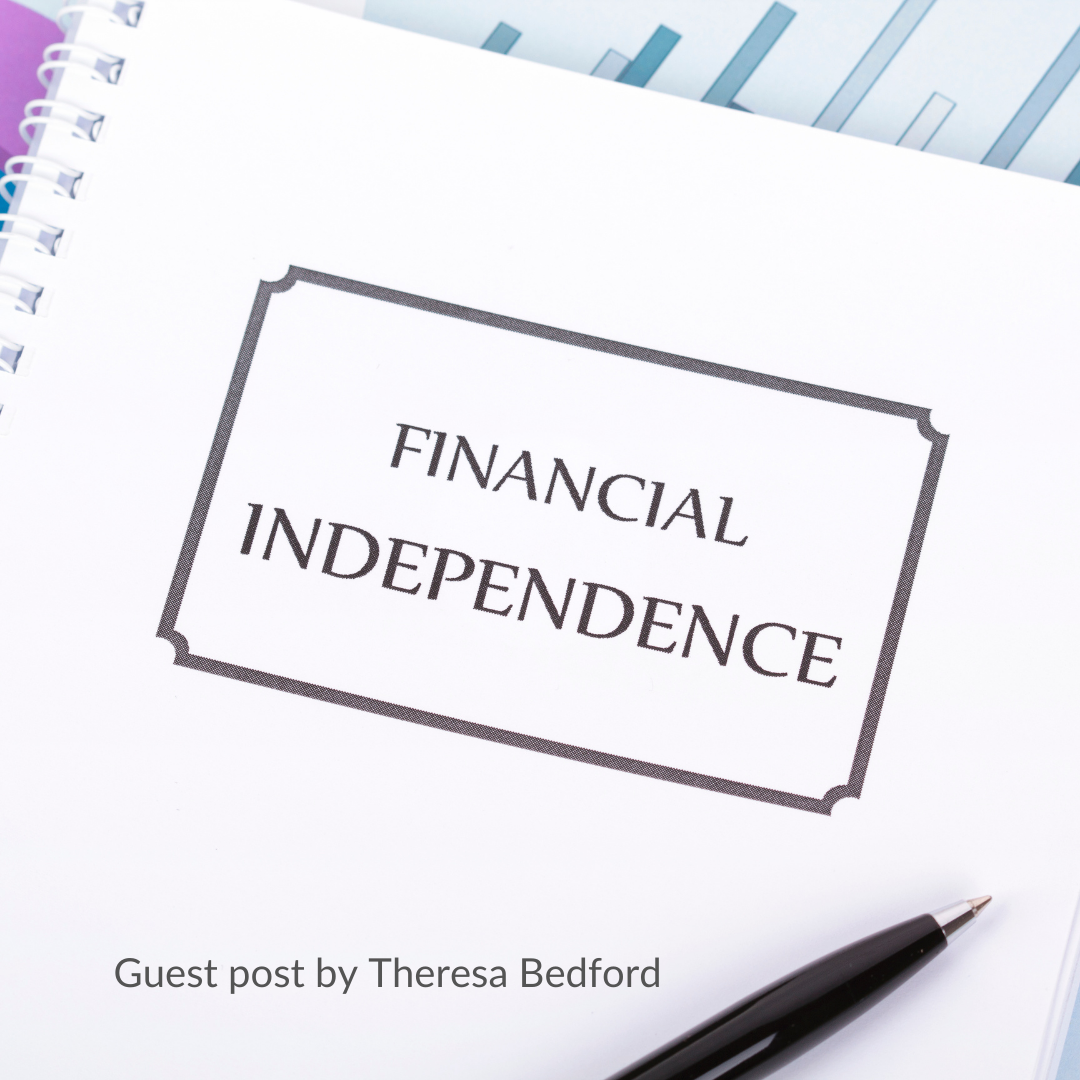Financial Independence (11 Hidden Benefits From The Journey)
By Theresa Bedford
The journey to financial independence (FI) isn’t about money or finances. It’s about freedom. Financial independence represents so much more than early retirement or a dollar figure. It’s the ability to work if you want, travel when you want, buy what you want, and give as much as you want.
Achieving FI is not easy. It requires a certain amount of dedication, planning, patience, and sacrifice. But it doesn’t require you to stop living. The journey is just as rewarding as the outcome. Keep reading to learn about the eleven hidden benefits of pursuing financial independence.
What is financial independence
Financial independence, also known as financial freedom, is defined as having enough money to live the life you want to live without worry. For some people, it’s $1 million in the bank. For others, it’s $2 million. It’s a very personal goal.
It’s a state of being where you can meet your financial obligations without the need for a job or assistance. Some people who have achieved financial independence choose to continue working because they enjoy it. Some people choose to retire, volunteer, and travel.
Financial independence is associated with a bit of frugality, financial stability, saving every month, and looking for ways to make extra money.
Why is financial independence important
Like it or not, money matters. It’s central to our well-being and mental health. When you don’t have enough money, you’re more likely to feel stressed, receive minimal healthcare, buy fewer fruits and vegetables, workout less, and more.
Seeking financial independence is essential because it requires being money savvy and building good financial habits. People who are seeking financial freedom often:
- Live on budget
- Minimize expenses
- Pay off debt
- Invest
- Pay themselves first
- Practice delayed gratification and self-control
- Learn and read as much as they can
Being financially free is vital because it can improve nearly every aspect of your life and the lives around you. Moreover, it has the potential to change outcomes for generations to come.
What are the hidden benefits of the journey
Have you ever heard the saying, “life is about the journey?” The same holds for financial independence. The journey is where the fun is. Here are the hidden benefits of the journey:
You’ll be smarter
You’re going to learn more than you ever thought possible once you begin the journey to financial independence. You’ll read books on personal finance, investing and stocks, economics, and self-improvement. You’ll learn to watch documentaries and how to read stock charts.
You won’t do these things because you have to. You’ll do them because you want to. For example, you’ll want to learn to be able to make better decisions for yourself. You’ll need to understand your financial situation even if you have a financial planning or financial advisor.
You’ll be more confident in your decision making
Now that you’re on the journey, you’ll have more confidence in your financial decision-making skills. You’ll know that you’re making the right decision because you’ll understand it. You’ll also know you’re making the best decision because you’ll have a plan.
The journey to financial freedom is built on a plan made specifically for you, by you. Sure, you’ll modify the plan a few times, but it will be the best-laid plan for you.
You’ll have greater financial security
As you take the journey to financial freedom, you’ll find that you won’t live paycheck to paycheck. And budgeting will become fun. As you see your net worth increase, you’ll gain more financial security and have less reliance on banks, employers, and other people for financial assistance. You’ll begin to set the rules of how you want to work your money.
You’ll worry about money less
Long before you achieve financial independence, you’ll worry less about money. You’ll have a budget and an emergency fund. So, naturally, you’ll worry less about money. You’ll know how much money you have and exactly what to do with it.
Your budget will help you begin to save. Saving with sinking funds will help you grow an emergency fund, plan vacations, and budget for holidays and birthdays.
When you manage your income and expenses, you won’t have to worry about how much you’re going to spend. Ultimately, you’ll save money because you won’t have to finance your monthly expenses or the little things anymore.
You’ll be happier
Ahhh, financial wellness… you’re going to find yourself happier when money isn’t driving your decisions. You’ll feel lighter and free when you don’t have to worry about your basic financial needs. You won’t mind spending a little extra for a vacation, new tires, or something else. Also, you might have some fun learning how your retirement accounts work and paying off student loans.
You’ll minimize expenses
As you begin the journey to financial freedom, you’ll need to minimize expenses to be cash-flow positive, maximize savings, and invest each month. Sure you can buy one share of a stock, but the real power in investing comes from compound interest over time.
Managing your finances will improve over time. Start with a budget that focuses on minimizing expenses, paying off debt, and start saving. Look for ways to cut costs and spend wisely:
- Cancel extra subscriptions to streaming services or gyms that you’re not using
- Find creative ways to lower your electric bill
- Minimize extra shopping trips that are costing you extra in gas
- Develop a stronger sense of delayed gratification that helps you avoid additional purchases
- Eat at home to save money
- Look for free entertainment options near your home
- Avoid late fees and unnecessary charges from your creditors
Nobody wants to pay more than they have to for something. Your financial independence journey will help you pay the minimum necessary for living expenses. What are you currently paying for that you don’t need?
You’ll have better credit
When you pay off your credit card bills and mortgage, your credit score will improve. This will, in turn, put you in the best position to borrow money at the best interest rates in the future. Not that you’ll necessarily need credit, but it will be an option. Options give you the power to make decisions.
You’ll value life in place of worldly things
While working towards financial independence, you have to save money, pay off debt, and minimize expenses. You’ll start to see that the new pair of shoes you want may not add the same value that wealth will bring. You’ll begin to look at everything in terms of time. How many hours will you have to trade for money to buy something? It’s a little less worth it when you think of things in terms of time. How much is your time worth?
You’ll have more control over your life and time
Your time is limited. Money is infinite. Getting to a point where you can spend your time doing what you want is essential. Financial independence will give you that time back. It will allow you to do what you want.
And the journey can give you more control over your life and time. You’ll have the power to do what you want long before you reach the pinnacle of financial freedom. You’ll also live on a budget that helps you outline how much money you allocate for saving, investing, and bills. Sinking funds will allow you to save money for vacations, birthdays, Christmas, car expenses, emergencies, and more.
You may find that you enjoy potlucks and dinner at home a little more when you know that you’re saving money for your freedom. You don’t have to feel like you have to keep up with the Joneses anymore. You’re living by your goals, and that’s what makes you feel amazing.
You’ll set an example
Financial independence is more significant than you and me. It’s a movement to enjoy life and help others. As you work towards your financial goals, you’ll set an example for others. Imagine changing someone’s life just by having good spending habits. You’ll teach others money management, financial planning, and retirement planning. It’ll be a new world where people talk about the taboo subject of money, and we all start winning.
You’ll have something to look forward to
Lastly, you’ll have a sound financial future to look forward to. I mean, who doesn’t want something to look forward to. We all do. It gives us purpose and pleasure.
Working towards financial freedom gives you something more significant than anything else to look forward to. Nothing compares to independence, financial success, and being financially stable.
Final Thoughts
Don’t worry about how old you are or the money mistakes you may have made in the past. You still have time. The path to gain financial independence isn’t about being rich or wealthy quickly. It’s not about the ability to retire early. It’s about having a nest egg and owning your time. When you gain financial freedom, you can stop trading hours for dollars. It gives you the power to change your life and the life of the generations to come.
Building wealth is challenging. It’s often better to get rich slowly and grow wealth over the long-term with a plan. But don’t worry. It gets easier over time, and it’s not impossible with the right mindset. So, take the time to plan, create SMART money goals, develop financial discipline, get out of debt, improve your money management skills, start investing, and increase financial literacy. I believe in you. It’s time to be financially healthy and financially secure.
Please comment below where you are on the journey to financial independence. Your story is sure to inspire someone no matter where you are in the journey as a beginner or a success story. Let’s work together.
Article written by Theresa Bedford. Theresa is an investor and founder of the blog, In The Game Investing. She teaches busy professional women how to take control of their money and investments. She has been featured in Go Banking Rates, Your Money Geek, Savoteur, Christine Michel Carter, Thirty Eight Investing, and more.




